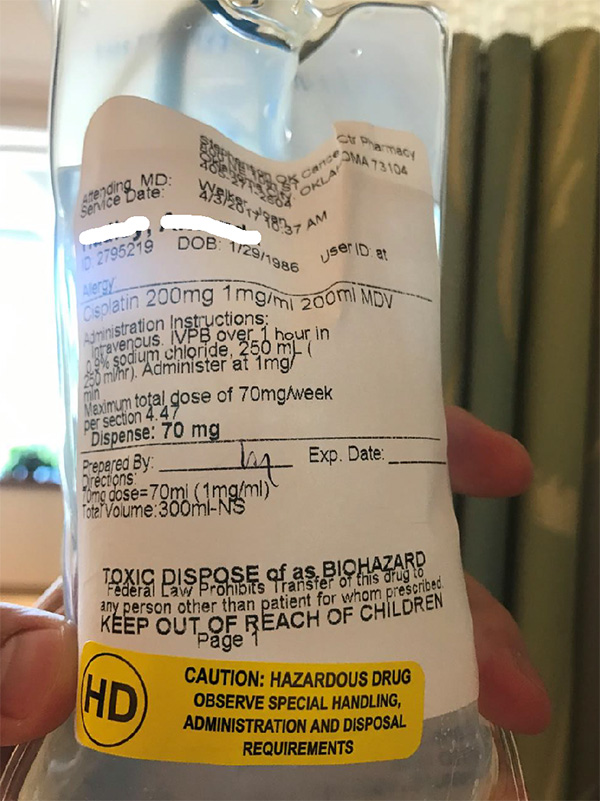The most common medical error involves medication. Medication errors can occur at any point in the delivery chain of ordering, transcribing, dispensing, administering or monitoring drug effects. Medication, from beginning to end, is a complex process involving multiple healthcare providers. Many of the healthcare providers in the chain many be separate and distinct companies from the ordering and administering company and may be unknown to the patient or the patient’s family. Hiring an experienced medical malpractice lawyer who understands this complex process is critical to proving your case and to finding the breakdown in the process that caused the error so the right healthcare providers are held accountable.
How do medication errors occur?
Medication errors occur not only in the hospital but in the doctor’s office, pharmacy, senior living center/nursing home or your own home. Kids are particularly at risk for medication errors because they usually need different drug dosing than adults. The most common causes of medication errors are errors in dose calculation, poor communication between healthcare providers, medications that look alike or sound alike, poor communication between the patient and the provider or poor medical abbreviation.
Medication errors are preventable yet they harm approximately 1.5 million people per year in the country. The extra medical costs of treating drug related medical errors is $3.5 billion per year, and this estimate does not take into account lost wages or productivity or additional healthcare costs. AMCP.org. Adverse medication errors should be reported to MedWatch: MedWatch Online Voluntary Reporting Form (fda.gov)

CMS or Medicare has deemed certain medication errors ‘Never Events’. These include, wrong drug, wrong patient, wrong dose, wrong route of administration, wrong regime, prior known allergy etc. For a complete list of CMS never events see: https://www.cms.gov/newsroom/fact-sheets/eliminating-serious-preventable-and-costly-medical-errors-never-events
Avoiding Medication Errors
Listed below are things you can do to help avoid medication errors in the hospital which include:
Share your medication list.
- Your doctors and nurses will need to know what you are taking. So before a hospitalization it’s important to have an accurate list to share with them. Be sure to include prescription medications, over-the-counter (OTC) products, herbals vitamins, and dietary supplements. Topical creams, ointments, medication pens, patches, eye and ear drops should also be included. Also, don’t forget any medicine you take only on occasion (like a rescue inhaler)
Discuss allergies and the type of reaction you have.
- Hospital staff will always ask about any allergies you might have, as well as bad reactions that you’ve had to any medication or substance. That includes food, latex, intravenous dye used by radiologists, and so on. So it’s wise to keep a list of these, too. The medical team will also want to know exactly what happens when you are exposed.
Discuss alcohol and other substance use.
- As a part of your health assessment, your doctors and nurses will ask you if you drink alcohol or use any illegal or prescription drugs that have not been prescribed to you. This information will remain confidential but is important for your care. Even if you have been prescribed certain types of medicines such as pain or anxiety medicine, you should tell the doctors if you have been taking more than the prescribed amount and how long you’ve been taking these drugs. It is important to be very honest with your doctors and nurses because alcohol and other drugs may interfere with medications you will be getting or change the way you respond to them.
Review your home medication list with medicines you are given in the hospital.
- If you are admitted to the hospital, ask your healthcare provider what medications you are getting while you are a patient so you can compare it with the list of medicines you take at home. If any medication is not being given to you during your hospitalization be sure to ask the nurse and doctor why you are not getting it.
Learn about new medications.
- Ask your doctor about each medication being prescribed and the reason you need to take it. Then have your nurse confirm the reason you are being given each medication. This way, if you hear something different, you should ask questions. This might prevent a medication error.
Keep your identification band (ID) on. Always make sure you are wearing a hospital ID bracelet and make sure nothing is done without someone first reading or scanning the bracelet to identify you. While the nurse is checking your ID, state your name and any other unique identifier the nurse asks you for (i.e., date of birth, home address).
Call for the nurse if a medication pump beeps.
- Medications and other intravenous (IV) fluids are frequently given using an IV pump. Sometimes these pumps can beep at unexpected times. Never attempt to turn off the pump or allow any visitors in the room touch the pump. Doing so can cause a medication or solution to be given too fast, too slow, or stop it.
Bring an advocate.
- Some hospitalized patients are either unable to participate in their own care due to illness or some type of other physical limitations. If this occurs, try to arrange for a close friend or family member to stay with you. This individual can help you keep track of the medications being administered to you. They can also help confirm your identity before your nurse gives you any medication.
Don’t let family members press a pain pump button.
- Some patients who have surgery or are in severe pain may be given a pain relief device known as patient–controlled analgesia (PCA). These devices allow a patient to take pain medicine without having to call a nurse. This is done through a pump connected to an intravenous line (IV). When a patient feels pain, a button can be pushed and a dose of medicine is released. This button must only be pressed by the patient, not by others. Sleepy patients will not press the button, which prevents overdoses. Others pressing the button for the patient can result in breathing difficulties.
Further Resources
ConsumerMedSafety.org – Prevent Medication Errors: Consumer Med Safety is a unique website provided by the Institute For Safe Medication Practices (ismp.org) and is focused on educating consumers to avoid medication mistakes.

